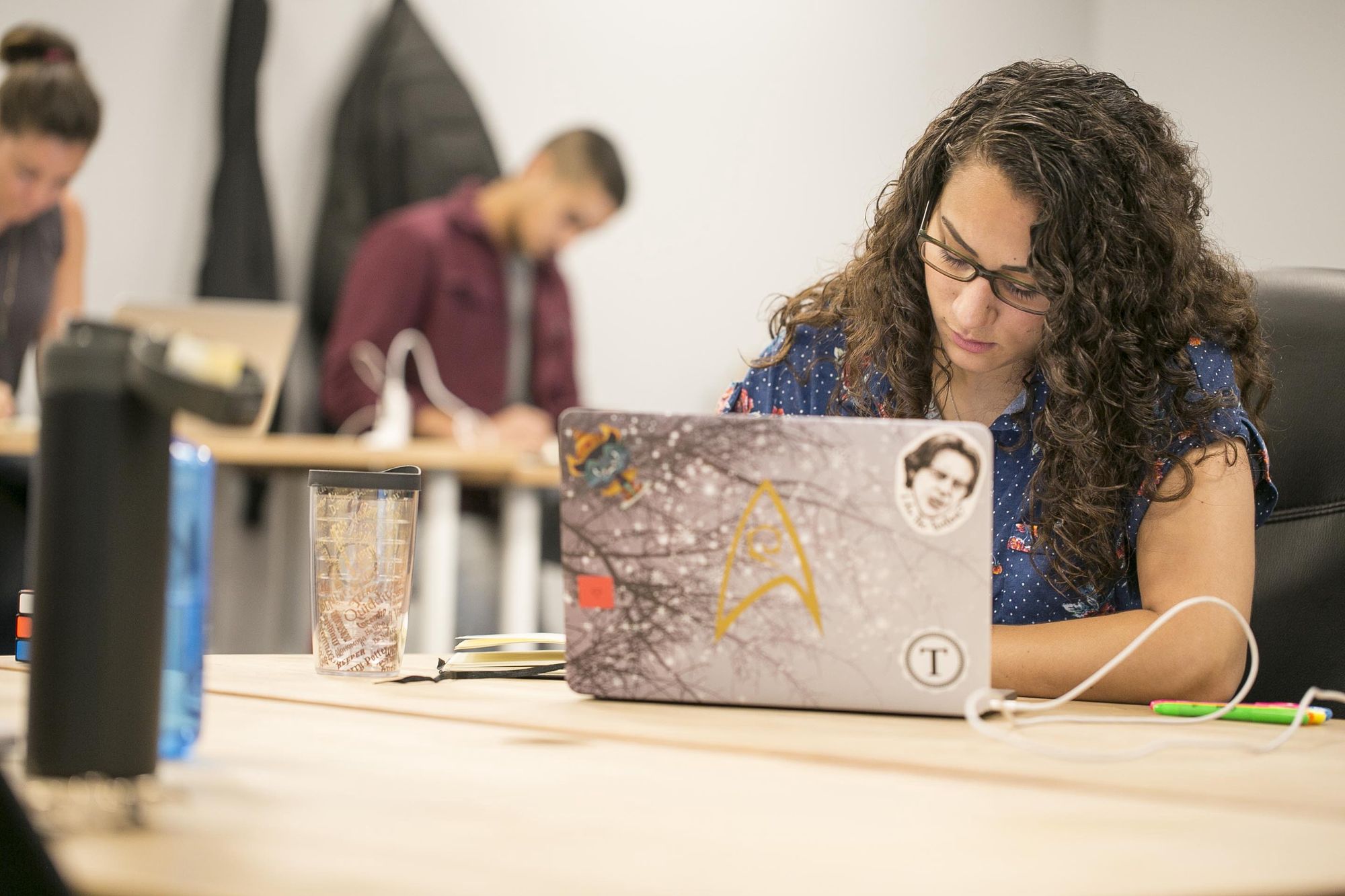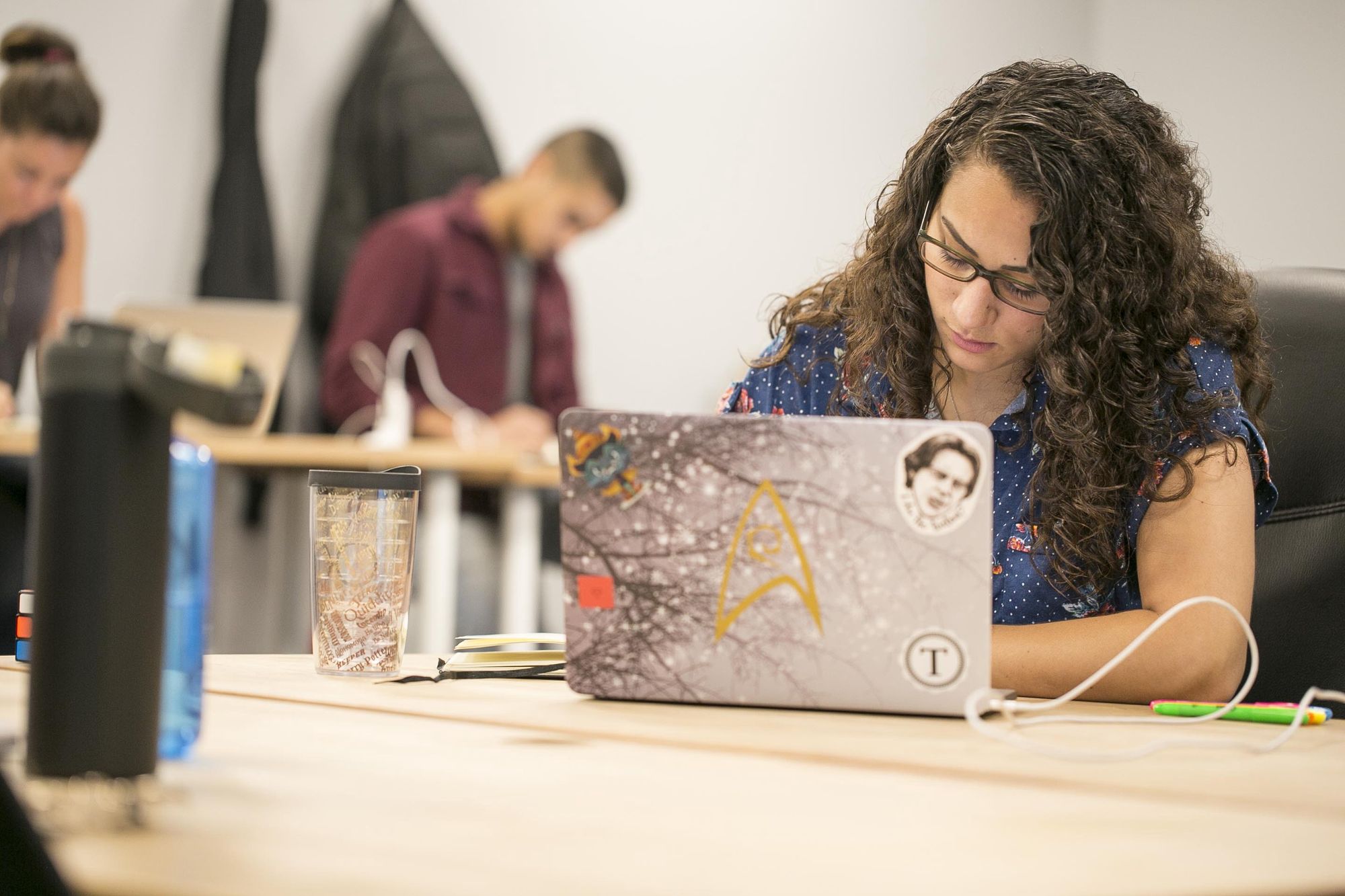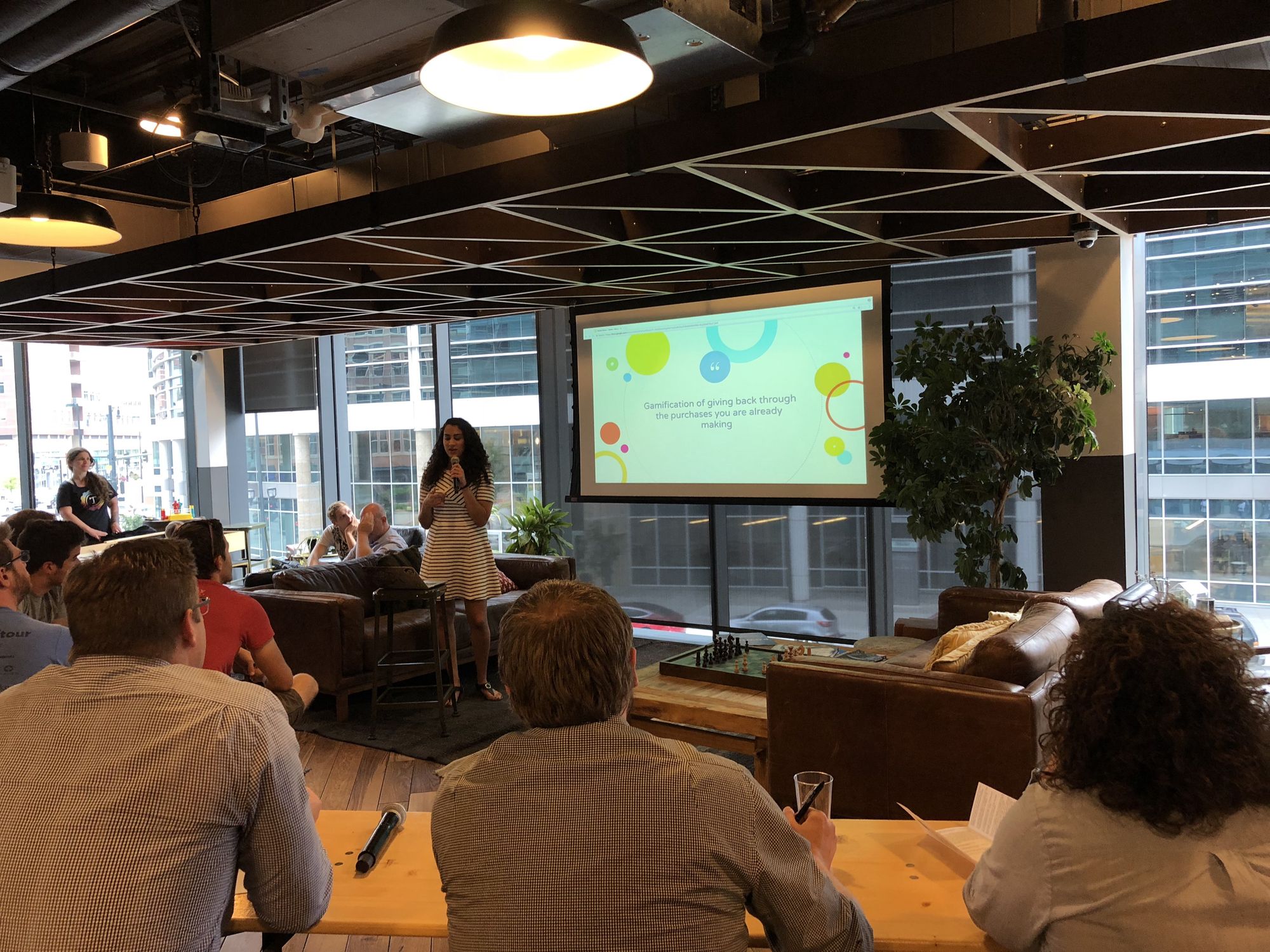Finding Your Dream Career — How Turing Supported My Job Hunt
Q&A with Justine Troyke, Turing Alum and Current Software Engineer, Workiva.

Q&A with Justine Troyke, Turing Alum and Current Software Engineer, Workiva
Why did you choose Turing's Back End program?
I love research, data and spreadsheets. I collected a lot of information about various programs based on their price, length, content and reputation. At first I was looking for the shortest possible program that would help me solve the immediate problems in my systems role but the more I researched the more I felt like this shouldn’t be a quick one off solution and I had the opportunity to build a better future for myself. Something to change the pattern I had experienced of always starting at a lower salary and having to prove myself over and over again just because I didn’t have a college degree.

Turing had the following, some of which I didn’t know I was looking for:
-Funding through a loan that could be paid off within a couple years
-Completion time in under a year
-The program covered many of the core topics I saw in a lot of dev job descriptions
-Reputation was all great, to the point that an alum advertised the one really bad review, and the issues that reviewer took were actually the final convincing factor for me, because they had a problem with the diversity and inclusion.
I met with some Turing alums and after a close inspection of their programs I was convinced it was the right fit for me. I sold most of what I owned, packed my truck full and drove out here from California.
What was your experience like?
Difficult. Rewarding. Emotional. Fun. Stressful.
Honestly, things worked out amazing for me and I had a job lined up right after graduation, so I don’t want to do that thing where you re-assess something better than your actual experience based on the relief you are feeling now that it’s over and things worked out.
Turing is hard, harder for me than many others I believe (but most people say this). I repeated mod 1 and constantly felt like I was going to repeat again or flunk out. The stress got to me on more than one occasion and it was by the grace and help of instructors, peers, mentors and family that I made it through. The program is rigorous but worth it; I learned more than I ever thought possible in a short amount of time and what’s better is that I now know how to learn quickly. I don’t feel scared about a failing piece of code or not knowing anymore. It’s a hard-earned but extremely rewarding experience and I now know some of the best people I have ever met. I would do it again and can’t be thankful enough for the excitement I feel about the job I get to do and the skills I now have.
How would you highlight and rate Turing’s job support and professional development curriculum?
Highly! They really care! If you put in the effort and ask for their help there isn’t an instructor or staff member who wouldn’t give their time, advice or assistance. You will get out what you put in from the program’s job support. Everything I had to do in my interview I had already practiced in a session at Turing. Whiteboard a code challenge, speak technically through my thought process, speak to my technical experience and tell my story.
What were your main takeaways?
Be myself. I have unique perspectives and attributes that can shine, but Turing helped me with being able to tell my story in an engaging way that would help showcase my strengths for the tech industry.
What advice did you follow?
Participate, put myself out there, keep my excitement and individualism when speaking to my future goals and past projects.
Do you think it worked?
Yes, everything that I didn’t want to do or felt inadequate about or unprepared for were the things my instructors were pushing me towards and my engagement with those activities directly resulted in my job offer.
And finally, what advice would you give to current job seekers?
Don’t stress about over-preparing for the specific interview or role (yes, practice code challenges and being able to speak technically, but don’t go overboard), find something about the company or role that genuinely excites or interests you and research that, have questions about that. Interview the company just as much as they interview you. The right team for you will want to hire you without you needing to be anything other than yourself. I found out recently from my manager that the thing that really sealed the deal for my job offer was that I accidentally cursed (DON’T DO THIS) in my interview and that I spoke really casually/enthusiastically about my personal project when I was explaining my struggles and how I overcame them. To paraphrase my manager, I was “briefly borderline unprofessional but in a good way” and they knew I was “authentic and a good fit for the team”. They want to know you are a human that they can work with, discuss problems with, provide feedback to and receive it from.
Wait, you had a job before you graduated? How did that happen again?!
I think it was a combination of my resilience and trusting the instructors/staff at Turing. They recognized my potential and also have seen many types of students and are constantly pivoting to find the best path for you. They were amazing at challenging me where I needed it in order to strengthen my weak areas while they also got excited about some of the things I could do well but still continued to push on those areas and made me dig deeper.
I think what made me job ready/get the offer was that I started early so that I was ready when the right person saw me. When I had the freedom to pick my own projects I took that and ran with it, I brought my outside interests into programming and then learned how to publicly speak to my tech stack, problems and resolutions.
At the encouragement of instructors I signed up for the code fair in mod 2 and demo night in mod 3. I had no interest in showing code I wasn’t necessarily proud of, but it paid off - I got better at speaking to the struggles of coding, my understanding of OOP, data management and the lessons I was learning. My mod 4 instructor said that I had more grit than he’d seen in a while and I think he is right, my willingness to persevere certainly helped me accomplish the things I needed to by the time I went to external demo night.
I was put in contact with a recruiter at my company through an engineering manager that saw my demo. I was ultimately hired by a different team but he recognized a culture fit and connected me with the right people.
Basically, trust the process and your choice! If you pick Turing you did so because something convinced you it was the right place. Put 100% into everything they have you do and personally invest, don’t go through the motions of the exercises, professional dev sessions or gear ups. Be vulnerable with yourself and truly reflect through the activities you do while at Turing. It will help rule out what doesn’t work for you but you’ll have that personal experience and reflection. You could also learn something new about yourself or others.


